Advertisement
Popular Now
Stardew Valley is a captivating farming simulation game that allows players to escape the bustling world and cultivate their own idyllic farm. Whether you're a newcomer or a seasoned player, mastering the intricacies of farming, animal husbandry, crafting, and community interaction is key to achieving success. This comprehensive guide will walk you through the essential "how-to" strategies for excelling in Stardew Valley, ensuring you make the most out of your gameplay experience.
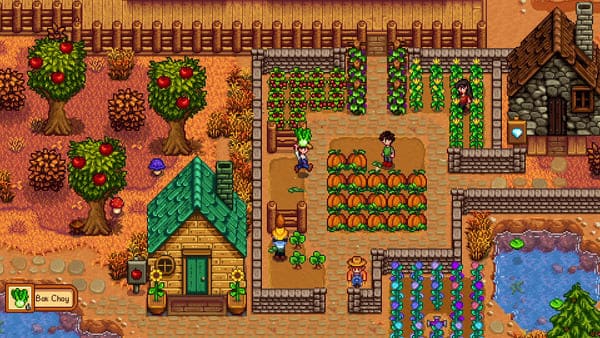 Getting started in Stardew Valley can be overwhelming with so many options and activities to choose from. Here's how to effectively set up your farm.
Getting started in Stardew Valley can be overwhelming with so many options and activities to choose from. Here's how to effectively set up your farm.
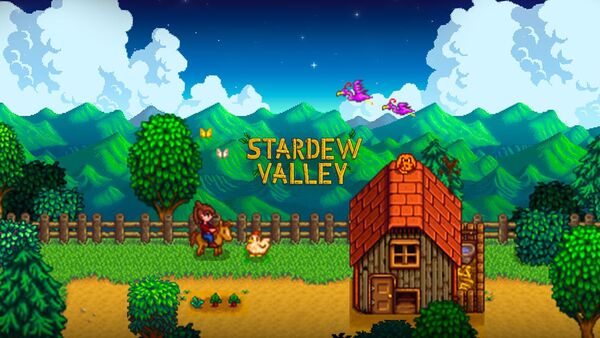 Selecting the right farm layout is crucial for maximizing your farm's potential.
Selecting the right farm layout is crucial for maximizing your farm's potential.
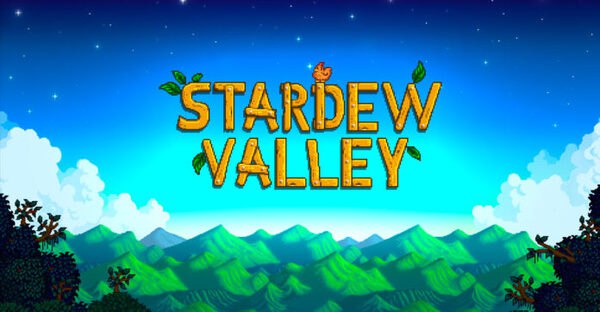 Effective planting and watering are essential to maintain healthy crops.
Effective planting and watering are essential to maintain healthy crops.
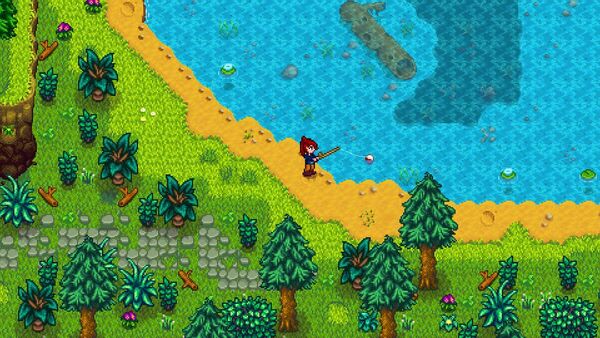 Efficiently harvesting crops ensures that you make the most of your investments.
Efficiently harvesting crops ensures that you make the most of your investments.
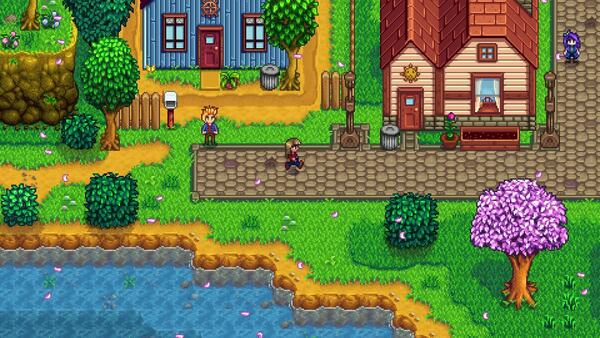
Setting Up Your Farm: The First Steps
 Getting started in Stardew Valley can be overwhelming with so many options and activities to choose from. Here's how to effectively set up your farm.
Getting started in Stardew Valley can be overwhelming with so many options and activities to choose from. Here's how to effectively set up your farm.
Creating Your Character
Before diving into farming, you'll first need to create your character. This is your avatar in the game, and customizing it can enhance your immersion.Customization Options
- Appearance: Choose your character's hair, skin tone, and clothing. This helps you feel more connected to your in-game persona.
- Farm Type: You can select different farm layouts that suit your play style—whether you prefer a standard layout, riverland, forest, or hilltop farm.
Choosing the Right Farm Layout
 Selecting the right farm layout is crucial for maximizing your farm's potential.
Selecting the right farm layout is crucial for maximizing your farm's potential.
Overview of Farm Types
- Standard Farm: Balanced for crops and animals. Ideal for beginners looking for a well-rounded experience.
- Riverland Farm: Focuses on fishing with limited crop space. Perfect for players who love aquatic life.
- Forest Farm: Provides abundant resources for foraging and crafting but limits crop space.
Mastering the Basics of Farming
Once your farm is set up, it’s time to learn the basics of crop farming.Selecting the Best Crops
Choosing the right crops for each season is vital for maximizing profit and productivity.Seasonal Crop Guide
- Spring: Consider planting Strawberries (available at the Egg Festival), Cauliflower, and Potatoes.
- Summer: Focus on Blueberries, which yield multiple fruits, and Melons, known for their high profit margin.
- Fall: Opt for Cranberries and Pumpkins for consistent yields and great profit potential.
Planting and Watering Techniques
 Effective planting and watering are essential to maintain healthy crops.
Effective planting and watering are essential to maintain healthy crops.
Steps for Planting
- Prepare the Soil: Use your hoe to till the soil before planting seeds.
- Water Daily: Crops need daily watering, especially in the early stages. Automate this with sprinklers as you progress.
- Crop Management: Keep track of crop growth and harvest them at the right time to maximize quality.
Enhancing Crop Yields
Maximizing the quality and quantity of your crops is crucial for making a profit.Improving Crop Quality
Higher quality crops fetch better prices at the market.Techniques to Enhance Quality
- Use Fertilizers: Different fertilizers improve crop quality. For example, using Quality Fertilizer increases the chances of producing higher-quality crops.
- Level Up Farming Skills: As you level up your farming skill, your chances of producing high-quality crops increase.
Harvesting Strategies
 Efficiently harvesting crops ensures that you make the most of your investments.
Efficiently harvesting crops ensures that you make the most of your investments.
Tips for Efficient Harvesting
- Use the Right Tools: Equip your scythe or pickaxe for larger areas to speed up the process.
- Organize Your Farm: Design your farm layout for easy access to crops and tools. A clear path makes harvesting quicker.
- Sell Strategically: Consider selling high-quality produce or using it for crafting items that yield better profits.
Raising Animals: A Profitable Venture
Animal husbandry adds another layer of depth to your Stardew Valley experience.Choosing Your Livestock
Different animals provide various products, each contributing to your farm's profitability.Common Farm Animals
- Chickens: Produce eggs daily and are easy to care for. Ideal for beginners.
- Cows: Provide milk but require more resources and space.
- Sheep: Produce wool, which can be turned into valuable products.
Caring for Your Animals
Proper care is essential to keep your animals happy and productive.Essential Care Practices

- Daily Feeding: Ensure your animals are fed daily, either with hay or by allowing them to graze.
- Shelter: Provide adequate shelter to protect animals from bad weather.
- Interaction: Regularly pet your animals to increase their happiness levels, which enhances product quality.
Crafting and Cooking: Adding Value to Your Harvest
Crafting and cooking are vital for maximizing the value of your farm products.Crafting Essentials
Crafting allows you to create items that can enhance your farming experience.Important Crafting Recipes
- Preserves Jar: Transforms fruits into preserves, yielding higher prices than raw produce.
- Keg: Ferments fruits into wine or beer, both of which are highly profitable.
- Cheese Press: Converts milk into cheese, a valuable product that can be sold or used in cooking.
Cooking for Health and Profit
Cooking not only replenishes energy but can also be sold for a profit.Popular Cooking Recipes
- Vegetable Medley: Made from seasonal crops, this dish restores health and energy.
- Pumpkin Soup: A hearty meal perfect for the fall season that sells for a great price.
- Farmers Lunch: Restores energy and is a well-received gift for villagers.
Building Relationships: Community Engagement
Building relationships with the townsfolk is an essential aspect of the game.Getting to Know the Villagers
Each character has their own personality and interests. Engaging with them can unlock special rewards and events.Tips for Building Friendships
- Gifting: Learn villagers' favorite gifts and give them regularly to increase friendship points.
- Quests: Completing quests for villagers not only boosts friendship but can also yield valuable rewards.
- Festivals: Participate in seasonal festivals to interact with multiple characters and strengthen community bonds.
Benefits of Friendship
Developing friendships can lead to various perks and rewards.Rewards for Strong Relationships
- Heart Events: Special scenes that reveal more about the character's backstory.
- Recipes: Unlock unique recipes that can enhance your cooking options.
- Community Projects: Higher friendship levels contribute to communal goals, providing benefits for everyone.
Mining and Foraging: Resource Gathering
Mining and foraging are essential for gathering the resources needed for crafting and upgrades.Mining Basics
Mining provides ores, gems, and other valuable materials essential for tool upgrades and crafting.Tips for Effective Mining
- Prepare Your Inventory: Bring health-restoring items to sustain you during expeditions.
- Upgrade Tools: Prioritize upgrading your pickaxe to mine resources more efficiently.
- Explore Thoroughly: Each level of the mines contains unique resources and enemies; explore them for maximum rewards.
Foraging Techniques
Foraging allows you to gather wild resources that can supplement your income.Foraging Tips
- Seasonal Awareness: Different items are available in each season, so keep an eye on foraging opportunities.
- Use the Calendar: Certain items are more abundant at specific times of the year, so plan your foraging trips accordingly.
- Quick Collection: Use tools to gather items faster and more efficiently.
Upgrading Tools and Buildings
Upgrading your tools and buildings is crucial for improving efficiency on your farm.Upgrading Tools
Investing in tool upgrades enhances your farming experience significantly.How to Upgrade
- Visit Clint: Go to the blacksmith and provide the necessary ores and gold to upgrade your tools.
- Prioritize Tools: Focus on upgrading your watering can and hoe first, as they are essential for crop care.
- Max Level Tools: Each tool has a maximum level. Strive to obtain the best tools for maximum efficiency.
Building Upgrades
Upgrading your barns, coops, and other buildings allows for greater productivity and efficiency.Key Building Upgrades
- Barn Upgrades: More space for animals and better living conditions.
- Greenhouse: Enables year-round crop growth, maximizing farming potential.
- Silo: Stores hay for animals, ensuring a consistent food supply.



















